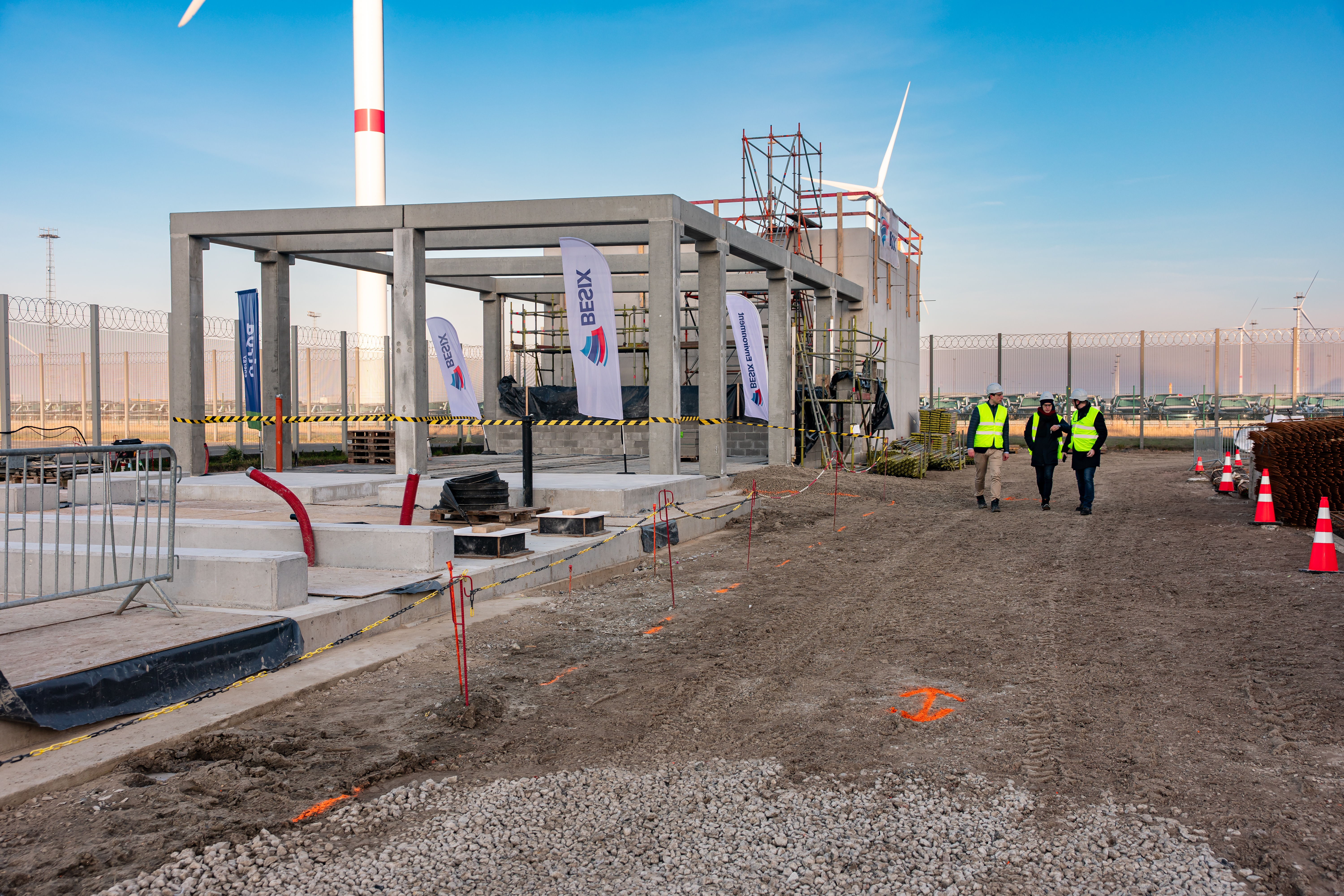Belgium's green hydrogen push: New plant and deals to cut CO₂ emissions

Construction of Belgium's first green hydrogen plant - Hyoffwind - has begun in Zeebrugge, marking a major step in the country's energy transition. At the same time, French energy giant TotalEnergies has signed agreements with gas company Air Liquide to use green hydrogen to reduce emissions at its refineries in Antwerp and Zeeland.
The Hyoffwind plant in Zeebrugge, which is expected to be operational by the end of 2026, must reduce carbon emissions by 25,000 tonnes per year. It is a collaboration between the family-owned companies Messer and Virya Energy and the investment group Hyoffgreen, supported by the Flemish Energy Holding.
With growing demand in industry and transport, projects like Hyoffwind are essential
Flemish minister-president Matthias Diependaele (N-VA) stressed the importance of large-scale hydrogen production in achieving regional and European decarbonisation targets. "With growing demand in industry and transport, projects like Hyoffwind are essential for expanding the green hydrogen economy in our region," he said.
Construction of Belgium's first green hydrogen plant "Hyoffwind" officially launched in Zeebrugge
Reducing CO₂
More green hydrogen news comes from TotalEnergies, which has secured an annual supply of 45,000 tonnes of green hydrogen to reduce CO₂ emissions by 450,000 tonnes at its Belgian and Dutch refineries. In partnership with Air Liquide, the company plans to build a 250 MW electrolyser near its Zeeland refinery, due for completion in 2029, with a capacity to produce up to 30,000 tonnes of green hydrogen per year. The €600 million project is expected to receive government support, reinforcing the transition to cleaner industrial energy sources.
In addition, TotalEnergies and Air Liquide will produce 15,000 tonnes of green hydrogen per year near Rotterdam, supplying the Antwerp refinery and reducing emissions by a further 150,000 tonnes. The Antwerp site, which currently emits four million tonnes of CO₂ per year, will be targeted for further reductions. These initiatives represent an important step in Europe's decarbonisation strategy, supporting the shift away from fossil fuels and positioning green hydrogen as a key player in the region's low-carbon transition.
Green hydrogen is hydrogen produced using renewable energy sources, primarily electrolysis, which splits water into hydrogen and oxygen using electricity from wind, solar or hydroelectric power. Unlike grey or blue hydrogen, which is derived from fossil fuels and emits CO₂, green hydrogen is completely carbon-free, making it a key solution for decarbonising heavy industry, transport and energy storage. |
|---|
#FlandersNewsService | © BELGA PHOTO & VIDEO KURT DESPLENTER
Related News
